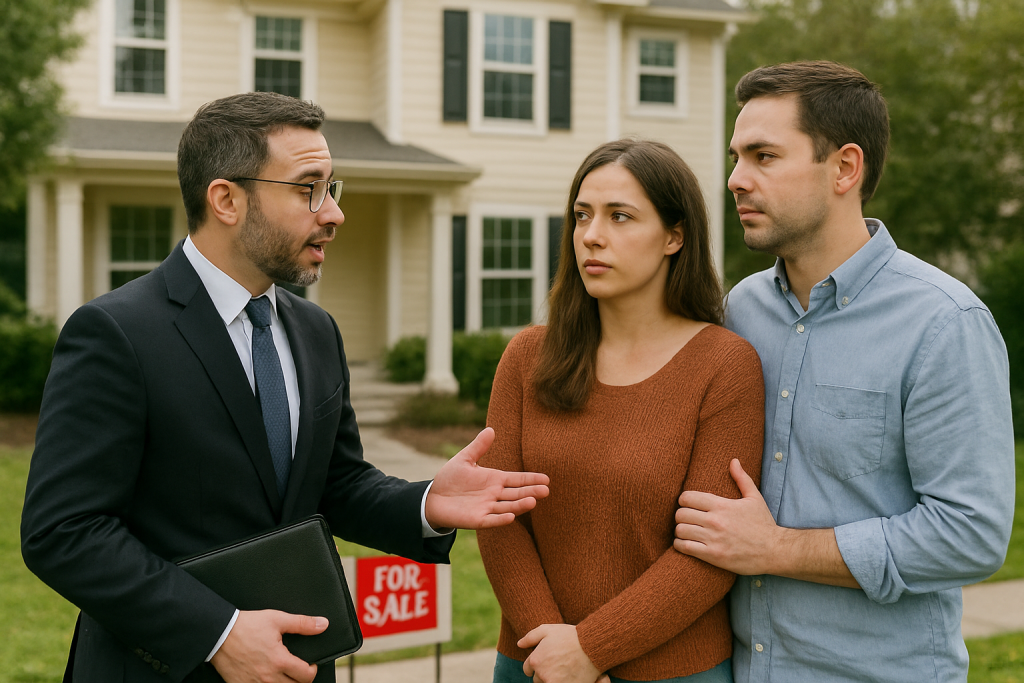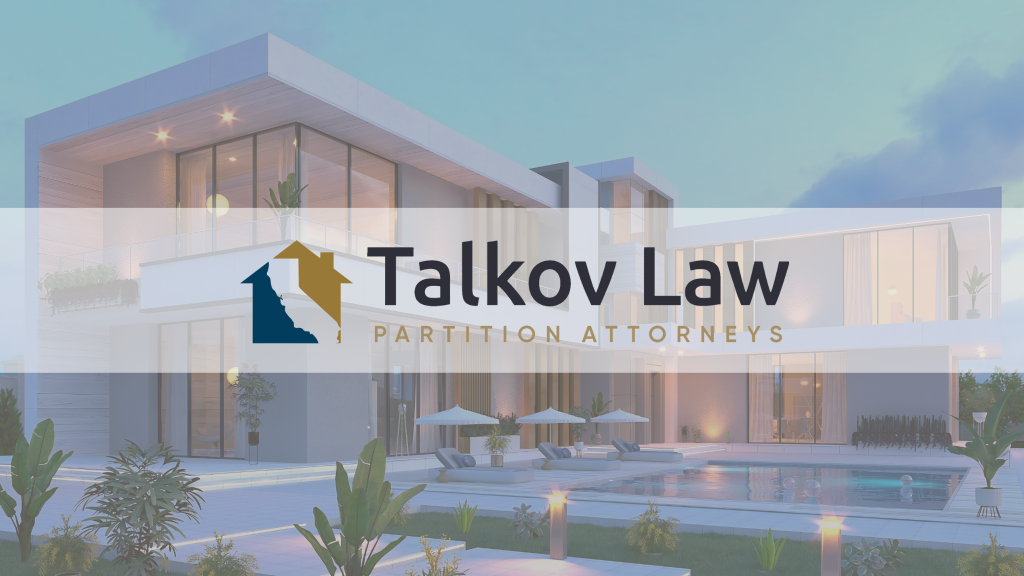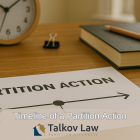No Upfront Cost to Resolve Property Disputes
When co-owners in Humboldt County cannot agree on what to do with their shared property, the law provides a clear solution: partition. At Talkov Law, we specialize in partition actions in California, leveraging our experience in real estate law and local market knowledge to protect your rights and unlock your equity.
- Zero Partitions Denied
- 500+ Partition Cases Filed
- Most Cases Resolved in Under 7 Months
- No Fees Unless You Win!
Call Now at (707) 777-6600

Move Ahead in Solving Your Partition Dispute
Our partition attorneys are prepared to walk you through each stage. We do the legal heavy lifting so you can look ahead with confidence.
Co-Ownership Conflict? Not Anymore.
We resolve co-ownership disputes quickly, most in under 7 months, with no upfront costs to you.
Talkov Law Partition Attorneys stand apart as the only California firm focused solely on partition actions, having guided hundreds in cases like yours.
Book Your Free Consultation
Get clarity on your rights as a co-owner by booking your no-cost consultation now.

Secure Your Rights Through Legal Action

Take Control of Your Share
What is a Partition Action?
A partition action is a legal process initiated in court to divide or sell real estate that co-owners cannot agree on.
Common Scenarios
- Farm or agricultural land shared by relatives
- Investment real estate gone wrong
- Unmarried couples breaking up after buying a house together
In California, any co-owner has an absolute right to partition real property under California Code of Civil Procedure 872.710.

Hundreds Choose Talkov Law Partition Lawyers
From complex legal battles to life-changing victories, our clients share how Talkov Law helped them find clarity, confidence, and success.
Frequently Asked Questions About Humboldt County Partition Actions
Not sure what your options are, what it might cost, or how long it may take? This FAQ responds to the most frequent co-owner questions. If your concern isn’t covered, your free consultation is just a click away.
📞 Call (877) PARTITION 📞
Can I recover attorney's fees in Humboldt County?
In California, including Humboldt County, attorney's fees in a partition action can be recovered if the court finds it equitable, typically allocating them among the parties in proportion to their ownership interests or as the court deems just.
What if there's a mortgage on the property in Humboldt County?
In a California Partition Action, such as in Eureka, the court will typically order the sale of the property, and the proceeds will first be used to pay off any existing mortgage before being distributed among the co-owners.
What if a co-owner made improvements or paid more in Humboldt County?
In Humboldt County, if a co-owner has made significant improvements or paid more towards the property, the court may consider these contributions in a California Partition Action, potentially adjusting the final division of proceeds to compensate the contributing party.
What happens if a co-owner won't cooperate in Humboldt County?
In Humboldt County, if a co-owner refuses to cooperate in a Partition Action, the court can order the sale of the property and distribute the proceeds among the co-owners, or physically divide the property if feasible, ensuring each party receives their fair share.

Humboldt County Real Estate and Legal Data
- In Humboldt County, the median home value is around $450,000.
- Humboldt County has an estimated population of 135,558.
- The average rent in Humboldt County is around $1,500 per month, as of 2024..
At Talkov Law, our Humboldt County Lawyers have resolved partition disputes in under 7 months with our expert partition strategies.
Why Choose Talkov Law for Your Partition Case?
- Dominant Experience: 470+ Partition Actions – Outpacing all other competitors
- Unique Focus: The only California practice with exclusive dedication to partition law
- Flawless Record: No denied partitions in more than 16 years


Partition Attorneys Serving All of Humboldt County
We also serve clients near Siskiyou County, Eureka, Arcata, Rio Dell, Del Norte County, Fortuna, Yreka, Crescent City, Mount Shasta, Ferndale, Trinity County, Weed, Dunsmuir, Montague, Blue Lake, Tulelake, Dorris, Etna, Fort Jones, and Trinidad.
Our attorneys have extensive experience handling partition actions across Humboldt County.
Local Expertise in Neighborhoods Like: Arcata, Eureka, and McKinleyville. Also Serving Areas in:Mendocino County, Chico, Butte County, Sonoma County, and Santa Rosa.
Your case will likely be heard at the Humboldt County Superior Court, located at 825 5th Street, Eureka, CA 95501.


































































































































